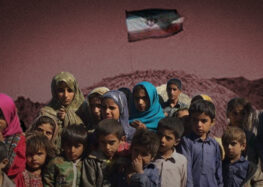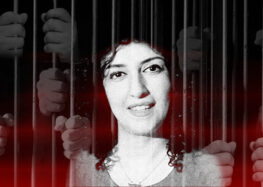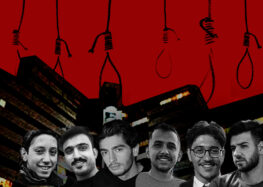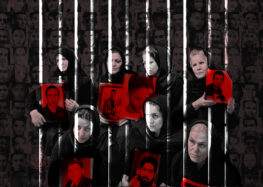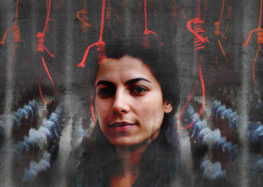Lives of Detained Pregnant Journalist and Paralyzed Politician in Danger
Clampdown on media increases need for United Nations observation role
(6 July 2009) With as many as two thousand individuals, including more than two-hundred prominent personalities, under incommunicado detention in Iran, serious concerns for their health and safety are growing. There are increasing reports of extensive use of solitary confinement and torture against the detainees.
While the Iranian Judiciary has announced a directive to criminalize cooperation with satellite television programs and “opposition” internet communication, authorities have continued to detain individual journalists, including Masoud Bastani, who was arrested on 5 July as he inquired about the whereabouts of his wife, Mahsa Amrabadi, a pregnant journalist arrested on 14 June, according to the International Campaign for Human Rights in Iran.
The life of another detainee, Saeed Hajarian, a prominent politician and journalist who is paralyzed, is in danger. For the past ten days, his family have not been able to verify his condition. He may be in critical condition and hospitalized. Since his detention on 15 June, his wife has been able to see him only once for ten minutes.
The Campaign called on the Iranian government to immediately and unconditionally release more than a thousand detainees who have been arrested since the 12 June election.
“In view of the inhumane conditions in Iranian detentions centers and prisons, Mahsa Amrabadi’s health and that of her unborn child are at grave risk,” said Aaron Rhodes, a spokesperson for the Campaign. “Although no one has specific information about Mahsa, being held in incommunicado detention for this long is stressful enough to hurt her and her baby, not to mention possible interrogation and even torture.”
“Hajarian’s physical conditions and his health were already deteriorating before detention. It is cruel and inhumane to hold these individuals in detention, let alone incommunicado detentions,” he said.
Other journalists are being arrested in what appears to be an intensified effort to shut down independent information sources. On 28 June, journalist Mojtaba Tehrani, of the Etemad e Melki Daily, was arrested. On 30 June, Kambiz Nouroozi, legal secretary for the Journalists Association, was arrested, and on 5 July, authorities arrested Issa Saharkhiz, a journalist, founding member of the Journalists Association and the former director of the press department of the Ministry of Culture and Islamic Guidance. According to information received by the International Campaign for Human Rights in Iran, more than 20 journalists have been arrested and remain in jail since the presidential election results was announced on 23 June 2009.
Ayatollah Mahmoud Hashemi-Shahroudi, the head of Iran’s Judiciary, has issued a directive calling for the prosecution of individuals cooperating with satellite television networks and or active in “organizations entrenched in Internet sites,” according to the Hamshahri newspaper. He requested all provincial judiciary officials to allocate special branches to review these cases and to initiate criminal cases on the basis of articles 498, 499, 500, 504, 508, and 510 of the Islamic Penal Code. According to this directive, the distribution of any piece of information or news through Internet or satellite networks would be considered a crime.
“As the government takes steps to silence journalists and cut communications with the outside world, it is all the more important for the United Nations to send envoys to observe the situation and to hold the Iranian government accountable for its legal human rights obligations,” Rhodes said.

